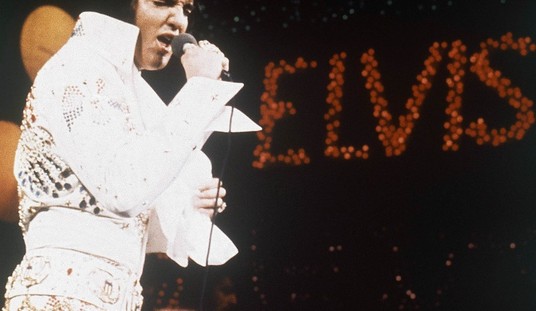The above quote is from today’s Wall Street Journal “MarketWatch” article on HSBC — and it comes from the Justice Department itself:
A Justice Department statement notes that banks are supposed to try to mitigate money-laundering risks by monitoring wire transfers. HSBC allegedly used an internal system that would trigger a review of wire transfers based on the amount of the transaction and the type and location of the customer.
However, between 2002 and 2009 HSBC ranked Mexico as having “standard” money laundering risks, the lowest of the bank’s four possible country risk ratings. As a result, the Justice Department contends that its transactions in Mexico weren’t subject to HSBC’s automated monitoring unless customers were classified as high risk. Read about how HSBC officials were quizzed about money-laundering in July.
Basically, the low ranking allowed “hundreds of billions of dollars” in wire transfers from Mexico to be excluded from the bank’s internal reviews, as a result, the Justice Department alleges.
Specifically, the government says HSBC failed to monitor over $670 billion in wire transfers from HSBC’s Mexico division between 2006 and 2009 and failed to monitor over $9.4 billion in purchases of U.S. dollars from HSBC’s Mexico unit over the same period. (The Justice Department’s said HSBC’s Mexico division became the “preferred financial institution for drug cartels and money-launderers.”
When Nina and I flew through Miami last month before and after the National Review Cruise, there were large ads from HSBC inside the jetway to our plane (apparently, there are large ads from HSBC on nearly every jetway) — but these were stickered by someone protesting HSBC’s role in laundering money.
A few observations: Well, it’s nice that somebody at the Justice Department is worried about Mexican drug cartels. This Photoshopped parody HSBC ad squares the circle quite nicely.
CBS wryly notes, “It’s a case that has everything — everything accept an arrest”:
To avoid criminal prosecution, HSBC admitted Tuesday that it laundered more than $800 million for Mexican drug cartels, and covered up illegal transactions for Burma, Iran, Sudan, Cuba, and Libya.
Those nations were under banking sanctions because of human rights atrocities, terrorism, or — in Iran’s case — a nuclear program.
The British bank will pay $1.9 billion to the U.S. government, the largest such fine in history.
It’s a case that has everything — everything accept an arrest. That struck some as odd, because in 80 pages of court documents, the bank admits to almost going out of its way to act as a financial clearing house for international pariahs and drug dealers.
Or as a HuffPost blogger quips, “Obama Administration Essentially Admits That Some Banks Are Too Big To Jail, Which Is Troubling”:
“It’s essentially telling the executives in these institutions crime pays,” Neil Barofsky, former Special Inspector General for the Troubled Asset Relief Program, the government’s bailout program, told CNN. “Go ahead, do whatever you want to do, enjoy your profits, and the worst thing that happens, well, you have some fines that really make up a couple of weeks of profits that you lose.”
Finally, if the Obama administration’s attitude about banks is truly that it is terrified of prosecuting them, for fear of upsetting the global economic order, then that is a damning statement about our financial system — though it is of a piece with everything else we’ve learned since the crisis: If you’re a bank and you’re big enough, you’re basically going to get away with everything short of murder. And maybe that, too. You can certainly create and sell toxic securities while also betting against them and trigger a global depression without having to worry about doing any jail time.
Hey, they don’t call him President Goldman Sachs for nothing. But then as with Obama’s myriad other excesses, the lads at the HuffPo knew about them prior to November and chose to remain quiet. I’m sure the fact that “Money-Laundering Bank Was Big Obama Donor,” as the Washington Free Beacon noted last week, had nothing to do with the paucity of arrests.
Finally, now we know what HSBC was apparently doing while it was flashing signs on its American ATMs about how proud it was to do business with that hotbed of activist cinematic feminist empowerment…Iran:

And this is an awfully ironic ad campaign as well, in retrospect:
Responsibility. You use that word. I do not think it means what you think it means.
Update: Back in 2008, Slate looked at “HSBC’s Bizarre Lumberjack Ad” and asked, “What does a violent environmental protest have to do with banking?” I don’t know, but in years since, we’ve seen plenty of radical environmentalism creep into network television sports, as well as multiple credit card related ads.
Which is a reminder that Victor Davis Hanson’s “Bloomberg Syndrome” doesn’t just apply to the government anymore:
Quite simply, the next time your elected local or state official holds a press conference about global warming, the Middle East, or the national political climate, expect to experience poor county law enforcement, bad municipal services, or regional insolvency.
Similarly, it couldn’t hurt to ask what’s going on, and/or what they’re trying to hide if a financial business is obsessed with any of those topics.










Join the conversation as a VIP Member